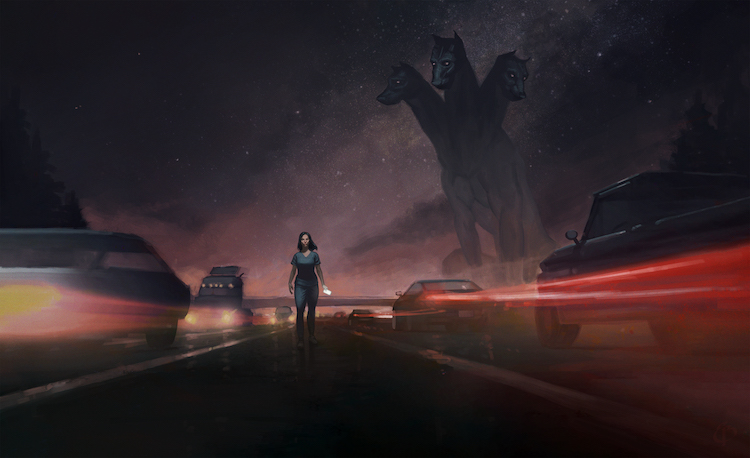
MEDIAN is newly out at Tor.com/Reactor. It’s also available as an ebook. I wrote this story when my mother-in-law was dying of cancer, one of the lightning strikes in a recent storm of deaths.
Writing horror is good therapy for real-life horror. I’ve written several horror stories lately, but that storm of death really put a kink in my writing practice. I haven’t been as productive as I want.
When you’re a new writer, one of the big problems is how to write. What you don’t know at that time is that these problems don’t really go away after you’ve solved them. They just morph. “How do I write?” turns into “How do I keep writing?” and the second question is even harder than the first. Because you can teach yourself to write, but how do you learn to keep writing in the face of everything life throws at you?
Back when I was a fresh new SFWA member, I volunteered for an admin project building the organization’s history archive. My job was to approach former SFWA board members and ask them to donate any materials they might have, such as meeting minutes, publications, newsletters, etc. Sadly, I discovered that many of those former board members were no longer writing. Once, they’d been deeply passionate about their writing careers — committed enough to volunteer for SFWA, and established enough to win the election, but then quit.
It’s terribly sad but understandable. Writing takes a lot of resources, and people can’t necessarily keep devoting those resources eternally. A writing career can stall at any point.
What resources does writing take? Time, obviously. Attention and concentration. Emotional energy. Money, or the ability to forego earning money, which means that either money for life is coming from elsewhere (most writers who rely on this don’t admit it), or the writer is willing to live in poverty, or both. Most commonly, we fit writing in around our day jobs. I did that for a long time. The vast majority of writers do.
When we are first writing, we talk a lot about finding the time. When we get more established, and start comparing time spent to money earned, we talk, bitterly, about money. But honestly, emotional energy is just as important as anything else. Writing stories requires access to emotions and the energy they create. Or, it sure does for me. Maybe there are writers who don’t need it, or can fake it. I can’t. For me, writing well means being able to feel things.
And when you’re grieving, it’s hard to feel anything other than grief. You’re emotionally and physically exhausted. Grief takes it all away. But I’m bouncing back. Working on developing a consistent writing practice, a consistent and productive artistic practice, taking advantage of new freedom to create new work.
I hope the storm is over.
